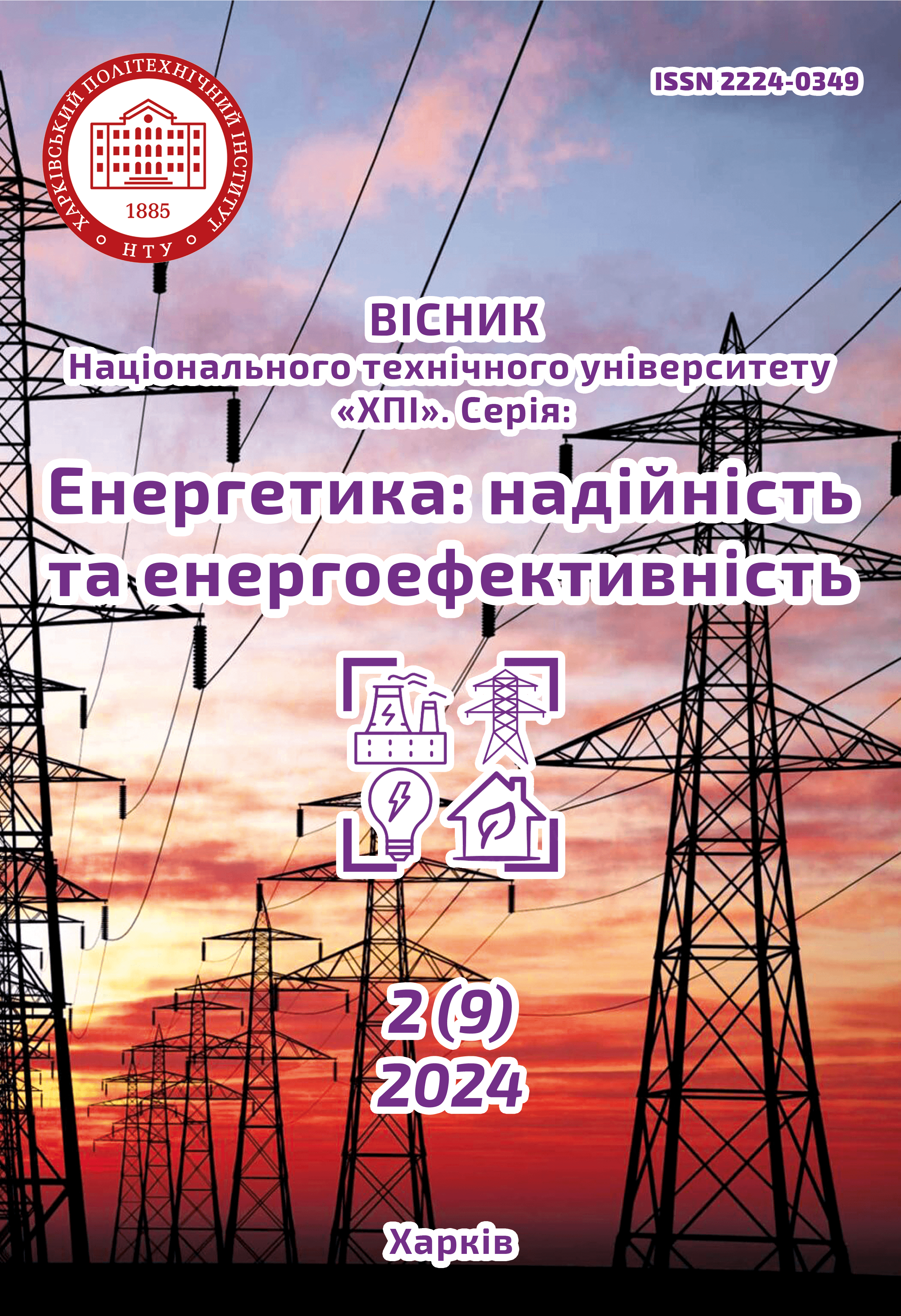Анотація
У статті розглядаються принципи та методи прогнозованого управління системами опалення з використанням технологій Інтернету речей (IoT) та предиктивної аналітики. Представлено модель керування процесом нагрівання приміщення, яка враховує теплові втрати та використовує алгоритми регулювання, що базуються на прогнозуванні зовнішньої температури. Основою моделі є інтеграція даних від IoT-датчиків і хмарного сервісу OpenWeatherMap, що дозволяє формувати коригувальний сигнал для оптимізації енергоспоживання та забезпечення стабільності температури. Запропоновано підхід до адаптації традиційних регуляторів (ПІ/ПІД) для дискретного режиму роботи котла, що гарантує якість перехідних процесів без перерегулювань і значних температурних коливань. У роботі детально описано реалізацію моделі в середовищі MATLAB Simulink, а також програмну інтеграцію через платформу Node-RED із використанням протоколу ModBus TCP. Крім того, досліджено ефективність розподіленої архітектури типу «сервер–виконуючий пристрій», яка забезпечує зручну інтеграцію IoT-систем із зовнішніми сервісами. Результати моделювання підтверджують, що врахування прогнозованих змін зовнішньої температури дозволяє суттєво знизити витрати енергії, зберігаючи тепловий комфорт і стабільність системи. Запропонована методика демонструє потенціал впровадження енергоефективних рішень для автоматизації управління кліматом у приміщеннях, а також перспективи подальшого використання IoT-технологій у цьому напрямку.
Посилання
W. Song, N. Feng, Y. Tian, and S. Fong, “An iot-based smart controlling system of air conditioner for high energy efficiency”, in 2017 IEEE International Conference on Internet of Things (iThings) and IEEE Green Computing and Communications (GreenCom) and IEEE Cyber, Physical and Social Computing (CPSCom) and IEEE Smart Data (SmartData), Exeter, UK, UK, Jun. 21–23, 2017. n.d., pp. 442–449, doi: https://doi.org/10.1109/ithings-greencom-cpscom-smartdata.2017.72
R. Carli, G. Cavone, S. Ben Othman, and M. Dotoli, “IoT based architecture for model predictive control of HVAC systems in smart buildings”, Sensors, vol. 20, no. 3, Jan. 2020, Art. no. 781, doi: https://doi.org/10.3390/s20030781
A. Kharbouch et al., “Internet-of-Things based hardware-in-the-loop framework for model-predictive-control of smart building ventilation”, Sensors, vol. 22, no. 20, Oct. 2022, Art. no. 7978, doi: https://doi.org/10.3390/s22207978
L. Ozgur, V. K. Akram, M. Challenger, and O. Dagdeviren, “An IoT based smart thermostat”, in 2018 5th International Conference on Electrical and Electronic Engineering (ICEEE), Istanbul, Turkey, May 3–5, 2018. n.d., pp. 252–256, doi: https://doi.org/10.1109/iceee2.2018.8391341
A. F. Subahi and K. E. Bouazza, “An intelligent iot-based system design for controlling and monitoring greenhouse temperature”, IEEE Access, vol. 8, pp. 125488–125500, 2020, doi: https://doi.org/10.1109/access.2020.3007955
Y. L. Cheng, M. H. Lim, and K. H. Hui, “Impact of Internet of Things paradigm towards energy consumption prediction: A systematic literature review”, Sustainable Cities and Society, vol. 78, Mar. 2022, Art. no. 103624, doi: https://doi.org/10.1016/j.scs.2021.103624
M. Gholamzadehmir, C. Del Pero, S. Buffa, R. Fedrizzi, and N. Aste, “Adaptive-predictive control strategy for HVAC systems in smart buildings – A review”, Sustainable Cities and Society, vol. 63, Dec. 2020, Art. no. 102480, doi: https://doi.org/10.1016/j.scs.2020.102480
G. Bedi, G. K. Venayagamoorthy, and R. Singh, “Development of an IoT-driven building environment for prediction of electric energy consumption”, IEEE Internet of Things Journal, vol. 7, no. 6, pp. 4912–4921, Jun. 2020, doi: https://doi.org/10.1109/jiot.2020.2975847
X. J. Luo, L. O. Oyedele, A. O. Ajayi, C. G. Monyei, O. O. Akinade, and L. A. Akanbi, “Development of an IoT-based big data platform for day-ahead prediction of building heating and cooling demands”, Advanced Engineering Informatics, vol. 41, Aug. 2019, Art. no. 100926, doi: https://doi.org/10.1016/j.aei.2019.100926
J. Ke et al., “Data-Driven predictive control of building energy consumption under the IoT architecture”, Wireless Communications and Mobile Computing, vol. 2020, Dec. 2020, Art. no. 849541, doi: https://doi.org/10.1155/2020/8849541
C. Sun et al., “Integrated control strategy of district heating system based on load forecasting and indoor temperature measurement”, Energy Reports, vol. 8, pp. 8124–8139, Nov. 2022, doi: https://doi.org/10.1016/j.egyr.2022.06.031
X. Gao, M. Jia, S. Cao, and C. Qi, “Study of an integrated control method for heating substations based on prediction of water-supply temperature and indoor temperature”, Buildings, vol. 12, no. 3, Mar. 2022, Art. no. 351, doi: https://doi.org/10.3390/buildings12030351
L. Hang and D.-H. Kim, “Enhanced model-based predictive control system based on fuzzy logic for maintaining thermal comfort in iot smart space”, Applied Sciences, vol. 8, no. 7, Jun. 2018, Art. no. 1031, doi: https://doi.org/10.3390/app8071031
O. Sian En, M. Yoshiki, Y. Lim, and Y. Tan, “Predictive thermal comfort control for cyber-physical home systems”, in 2018 13th Annual Conference on System of Systems Engineering (SoSE), Paris, France, Jun. 19–22, 2018. n.d., pp. 444–451, doi: https://doi.org/10.1109/sysose.2018.8428734
J. Song, L. Zhang, G. Xue, Y. Ma, S. Gao, and Q. Jiang, “Predicting hourly heating load in a district heating system based on a hybrid CNN-LSTM model”, Energy and Buildings, vol. 243, Jul. 2021, Art. no. 110998, doi: https://doi.org/10.1016/j.enbuild.2021.110998
M. Massano, E. Patti, E. Macii, A. Acquaviva, and L. Bottaccioli, “An online Grey-box model based on Unscented Kalman Filter to predict temperature profiles in smart buildings”, Energies, vol. 13, no. 8, Apr. 2020, Art. no. 2097, doi: https://doi.org/10.3390/en13082097
Imran, N. Iqbal, and D. H. Kim, “IoT task management mechanism based on predictive optimization for efficient energy consumption in smart residential buildings”, Energy and Buildings, vol. 257, Feb. 2022, Art. no. 111762, doi: https://doi.org/10.1016/j.enbuild.2021.111762
V. S. Nozdrenkov, A. V. Pavlov, G. A. Oleksiienko, O. Yu. Zhuravlov, and Yu. O. Zhuravlov, “Soft-adaptation of reference algorithm for discrete control”, Problems of Informatization and Management, vol. 2, no. 78, pp. 52–60, Jul. 2024, doi: https://doi.org/10.18372/2073-4751.78.18961 (in Ukrainian)

Ця робота ліцензується відповідно до Creative Commons Attribution-NonCommercial 4.0 International License.
Авторське право (c) 2024 Валерій Станіславович Ноздренков, Андрій Володимирович Павлов, Галина Андріївна Олексієнко, Олександр Юрійович Журавльов, Юрій Олександрович Журавльов


